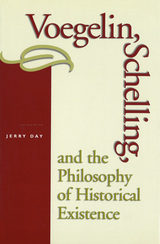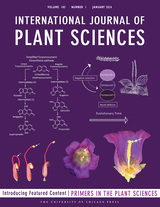2 books about Schelling

The Gestation of German Biology
Philosophy and Physiology from Stahl to Schelling
John H. Zammito
University of Chicago Press, 2017
The emergence of biology as a distinct science in the eighteenth century has long been a subject of scholarly controversy. Michel Foucault, on the one hand, argued that its appearance only after 1800 represented a fundamental rupture with the natural history that preceded it, marking the beginnings of modernity. Ernst Mayr, on the other hand, insisted that even the word "biology" was unclear in its meaning as late as 1800, and that the field itself was essentially prospective well into the 1800s.
In The Gestation of German Biology, historian of ideas John Zammito presents a different version of the emergence of the field, one that takes on both Foucault and Mayr and emphasizes the scientific progress throughout the eighteenth century that led to the recognition of the need for a special science. The embrace of the term biology around 1800, Zammito shows, was the culmination of a convergence between natural history and human physiology that led to the development of comparative physiology and morphology—the foundations of biology. Magisterial in scope, Zammito’s book offers nothing less than a revisionist history of the field, with which anyone interested in the origins of biology will have to contend.
In The Gestation of German Biology, historian of ideas John Zammito presents a different version of the emergence of the field, one that takes on both Foucault and Mayr and emphasizes the scientific progress throughout the eighteenth century that led to the recognition of the need for a special science. The embrace of the term biology around 1800, Zammito shows, was the culmination of a convergence between natural history and human physiology that led to the development of comparative physiology and morphology—the foundations of biology. Magisterial in scope, Zammito’s book offers nothing less than a revisionist history of the field, with which anyone interested in the origins of biology will have to contend.
[more]

Voegelin, Schelling, and the Philosophy of Historical Existence
Jerry Day
University of Missouri Press, 2003
In this important new work, Jerry Day brings to light the need for an extensive reinterpretation of the mature philosophy of Eric Voegelin, based on Voegelin’s published and unpublished appreciation for nineteenth-century German philosopher F. W. J. Schelling.
Schelling, whom Day maintains was one of the most important guides to Voegelin’s mature philosophy of consciousness and historiography, has been described as the father of several disparate movements and schools of continental philosophy—chief among them being “Hegelian” idealism and existentialism. This characterization implies that Schelling was a scattered thinker with little or no appreciation for philosophy as a disciplined inquiry into the nature of human affairs.
Voegelin was critical of this portrayal of Schelling. He argued that it lacked proper sensitivity for the impressive extent to which this giant of continental thought was able to rise above the “creed communities” of his time and recover the abiding concern of mature philosophers everywhere: the philosophia perennis. Those who claim that Schelling was scattered have failed, according to Voegelin, to appreciate the nonideological breadth of this great philosopher, misled by the splinter movements and schools that arose from mere fragments of his thought. In truth, Schelling founded no school and launched no movement. Instead, he reasoned with the disciplined integrity and wonder of a “spiritual realist.”
Day argues that Voegelin was a fine interpreter of Schelling, particularly during the decisive years when the central orientation of Voegelin’s mature thought was beginning to take hold—between the writing of his History of Political Ideas and its eventual transformation into Order and History. Day gathers an impressive array of evidence to interpret Voegelin’s little-known support for Schelling’s achievements, while offering detailed analyses and helpful summaries of a vast body of literature that has yet to be translated into English.
Day’s partial agreement with Voegelin’s uncommon assessment of Schelling provides him with the point of departure that leads to one of this book’s most distinctive contributions to contemporary thought. It has the rare ability to help clear the way for philosophical realists to make peace with many of their contemporaries, giving them further grounds for accepting the strongest anthropological and psychological insights of recent continental philosophy, while helping them to avoid its tendencies toward nihilistic despair or fideistic historicism.
By reading each philosopher through the eyes of the other, Day provides an analysis that will be illuminating for Voegelin scholars and Schelling scholars alike. The book will also appeal to readers with more general interests in the history and development of continental philosophy, political theory, and comparative religion over the past century.
[more]
READERS
Browse our collection.
PUBLISHERS
See BiblioVault's publisher services.
STUDENT SERVICES
Files for college accessibility offices.
UChicago Accessibility Resources
home | accessibility | search | about | contact us
BiblioVault ® 2001 - 2024
The University of Chicago Press









